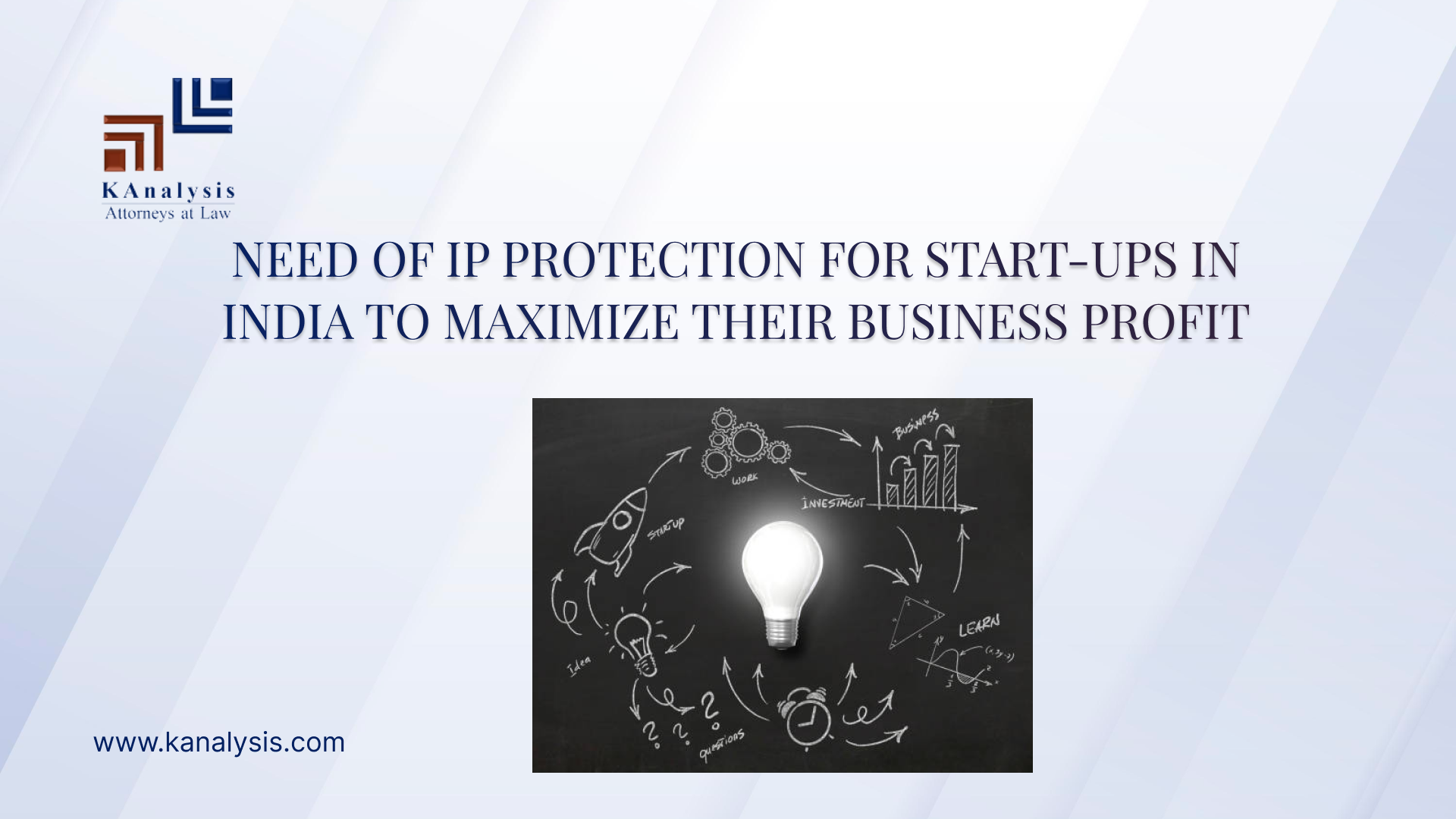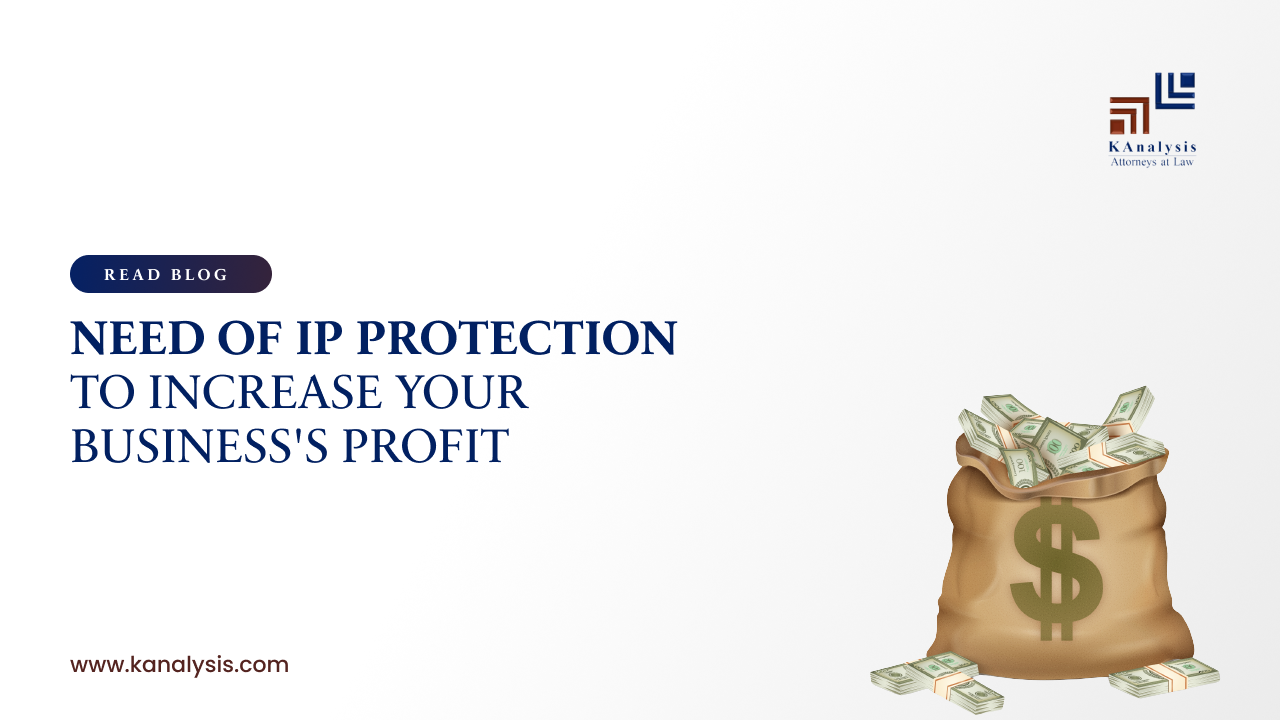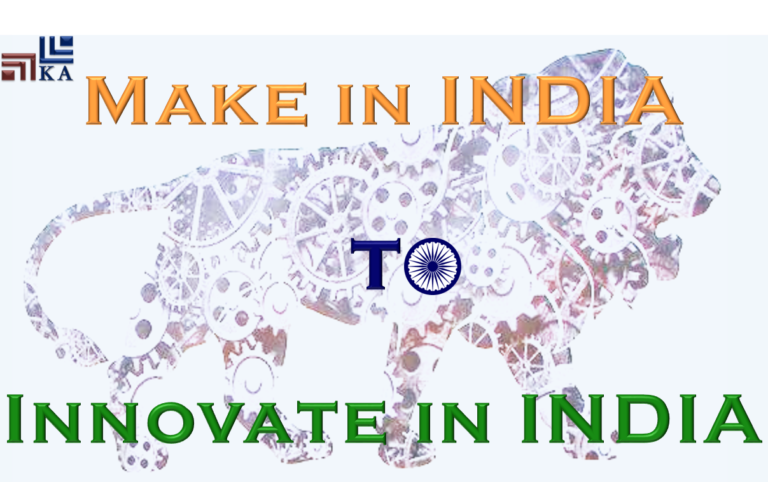On one hand, the startup business has a very dynamic environment, while technology and competitiveness are at their peak. To prevent your intellectual property from being utilized for other quality goods and services, you must constantly be on guard. In a market that is extremely competitive, protecting IPR is the best and only method to help you establish a sustainable and defendable differentiation. While innovation is a key component of any successful organization, it is particularly important for startups to safeguard the aforementioned traits within the practical framework of intellectual property rights.
UNDERSTANDING IP PROTECTION
IP has the power to transform an innovation into services and goods that are both commercially viable and profitable. Startups often focus on making a profit and staying in the market for the long haul. Thus, start-up’s get the following advantages while protecting their IP:
- Exclusivity: Legal protection of one’s business and related assets is essential in a competitive industry. Therefore, exclusivity in an IP asset provides a brand recognition which is crucial for any start-up that wants to grow.
- Competitive Advantage: This competitive strength is crucial for a start-ups growth and expansion pursuits. For instance, obtaining a trademark for newly launched goods or services may demonstrate the high calibre of those goods. Customers would develop a sense of trust and loyalty for the start-up as a result.
- Investing in further Research and Development (R&D): Start-up’s could be driven by ongoing research and development, which is essential for its success. For example, a patent owner may use his innovation for economic gain. This can then be used for research and development, which could boost a start-up’s business and ultimately spur growth.
- Monetisation: IP is a unique asset that can be commercialized and used as a support system during difficult times, aside from the legal considerations. There are many ways to make money from intellectual property, including selling, licensing, franchising, or getting royalties from IP assets.
DIFFERENT TYPES OF IP PROTECTIONS FOR STARTUPS
Entrepreneurs often ask IP attorneys about protecting their “business ideas” or brand and for this a well-planned IP protection strategy may be one way to successfully protect it. Thus, different types of IP protection available for the start-ups are as follows:
- Trademark: A trademark is a sign or symbol used to identify the goods and/or services of a company or other organisation; it can be registered with the Trademark Registry for protection.
- Copyright: With Copyright, Authors of original/unique literary, musical, or creative works are granted a copyright, which allows them to produce their work while prohibiting others from copying it.
- Patent: A patent gives the owner of an invention the authority to prevent others from making use of or infringing upon the innovation. The patent is granted for a specific field in a certain country for a period of 20 years in exchange for full acknowledgement of the invention’s technical specifics.
- Designs: Features of shape, formation, pattern, ornament or composition of lines or colors smeared to any article, whether in two dimensional or three dimensional or in both arrangements, can be registered under the (Indian) Designs Act, 2000.
THE PROCESS OF IP PROTECTION
Evaluating IP options also helps shield firms from accusations of intellectual property violation. Finding businesses that could already own the rights to particular ideas or trademarks is a step in the IP process. Knowing about these businesses at an early stage can protect your startup from expensive infringement claims after you’ve already spent money and time developing the idea independently. Because of this, IP search is significant.
For the purpose of registering, one’s IP in the cutthroat business world, applications for copyright, trademark, and patent must be submitted to the IP offices. Cost is the main defense for not formally protecting the intellectual property of your startup. Startups are still developing their businesses and frequently need money and other resources. It costs money, time, and other resources to protect IP rights. It thereby aids in establishing ownership, providing defense against infringement claims, discouraging other businesses from taking unfair use of your work, etc.
COST-EFFECTIVE IP PROTECTION STRATEGIES
Cost effective IP protection strategies are extremely important for any start-up to grow its business. For instance, patents are a crucial component of the commercial value of a tech start-up since they can prevent other businesses from using your technology to create a competing product and make money if they need to buy or licence it from you. The PCT allows for the submission of a single international patent application, which is recognised by 150 nations worldwide. The application can be used as a tool of reservation for submitting a patent to specific nations, and it provides a window of two and a half years during which to make this decision. During this time, it is possible to research if the idea will be commercially successful in the intended markets.
Furthermore, through PPH (Patent Prosecution Highway), a number of national patent office’s work together to streamline and speed up the processing of patent applications by accelerating the examination of related applications submitted in participating intellectual property offices. Thus, start-ups may take the PPH route to attain final disposition of a patent application more rapidly and effectively than regular examination processes. Also, government schemes such as SIPP can also cater to a start-up’s cost effective IP strategy by mentoring these new age businesses and promoting innovation.
THE ROLE OF IP IN RAISING FUNDS AND REVENUE GENERATION
Intellectual property rights give start-ups the opportunity to grow and profit with exclusivity for a predetermined duration by preventing rivals, larger establishments from stealing/copying ideas, inventions, and brand names/trademarks. As a result, such protection even increases their brand value and thereby investors consider safer to invest in such IP protected businesses. Furthermore, it also helps in guaranteeing to the customers authenticity of their products and in turn increases consumer trust. It is thereby advised that every start-up create a thorough plan relevant to the IPR framework. The protection will assure increase in market share, which will lead to consistent growth and revenue generation.
Let us consider an example of a new start-up food chain. It may easily earn revenue by commercially exploiting the trademark in the form of assignment, license, franchising or merchandising to another party and gives them the right to market a product or service using their IP and thereby in return receive royalties. In a trademark assignment complete transfer of ownership from the owner to the other party takes place. In the case of a trademark license, partial ownership is transferred to the other party while the owner enjoys ownership rights along with revenue.
THE ROLE OF IP LEGAL SERVICE PROVIDERS
Rapid technological advancements mean that no breakthrough or invention lasts for very long, and as a result, technology is constantly changing to meet new demands. In order to benefit the most from an IP, it is essential to safeguard it as soon as feasible. Additionally, startup has a legal right to what it has registered owing to IP protection. In other words, if a third party tries to use its IP, it may take legal actions against them. Here, comes the role of IP legal service providers who with its knowledge and experience navigate the IP protection process for a start-up. If a start-up through its legal service providers prevails in the lawsuit, the corporation that violated its intellectual property may be forced to pay the business money in addition to being forbidden from doing so in the future.
Furthermore, services relating to IP do not end with securing a registration certificate but actually begins with it. Post-registration services are crucial because the majority of IPs are only used or help generate advantages after they are registered. Therefore, services like annuity and renewal payment, opposition watch, post grant proceedings, etc. are essential in which various IP legal service providers plays an essential role.
CONCLUSION
Through licensing, fund raising, pooling, and clearing the path for acquisition, IP protection aids in generating revenue and value around intangible assets. Without IP protection, startups can run into significant risks when introducing new methods or products, or even when sharing new product ideas. To avoid unjustified litigation or legal action that could hinder its company operations, the startup must ensure that it is not violating any other party’s intellectual property rights before beginning any initiative.
Further, startup ventures should be proactive in developing and protecting their intellectual property for many reasons like improving the valuation of its business, to generate better goodwill, to protect its competitive advantage, to use intellectual property as a marketing edge and to use the IP Rights as a potential revenue stream through licensing. Therefore, it is of prime importance for a startup to consult an IP attorney to identify novelty and industrial applicability of their technologies which will undoubtedly be a “golden sword” for a smooth IP approach for an effective income generation.
REFERENCES
- https://ipindia.gov.in/writereaddata/images/pdf/startups_IPRFacilitation_22April2016.pdf
- https://ipindia.gov.in/writereaddata/images/pdf/statupUps_Scheme_05May2016.pdf
- https://ipindia.gov.in/newsdetail.htm?593
- https://ipindia.gov.in/writereaddata/images/pdf/pct-filing.pdf
- https://www.wipo.int/wipo_magazine/en/2021/02/article_0008.html
- https://www.wipo.int/wipo_magazine/en/2021/01/article_0003.html



